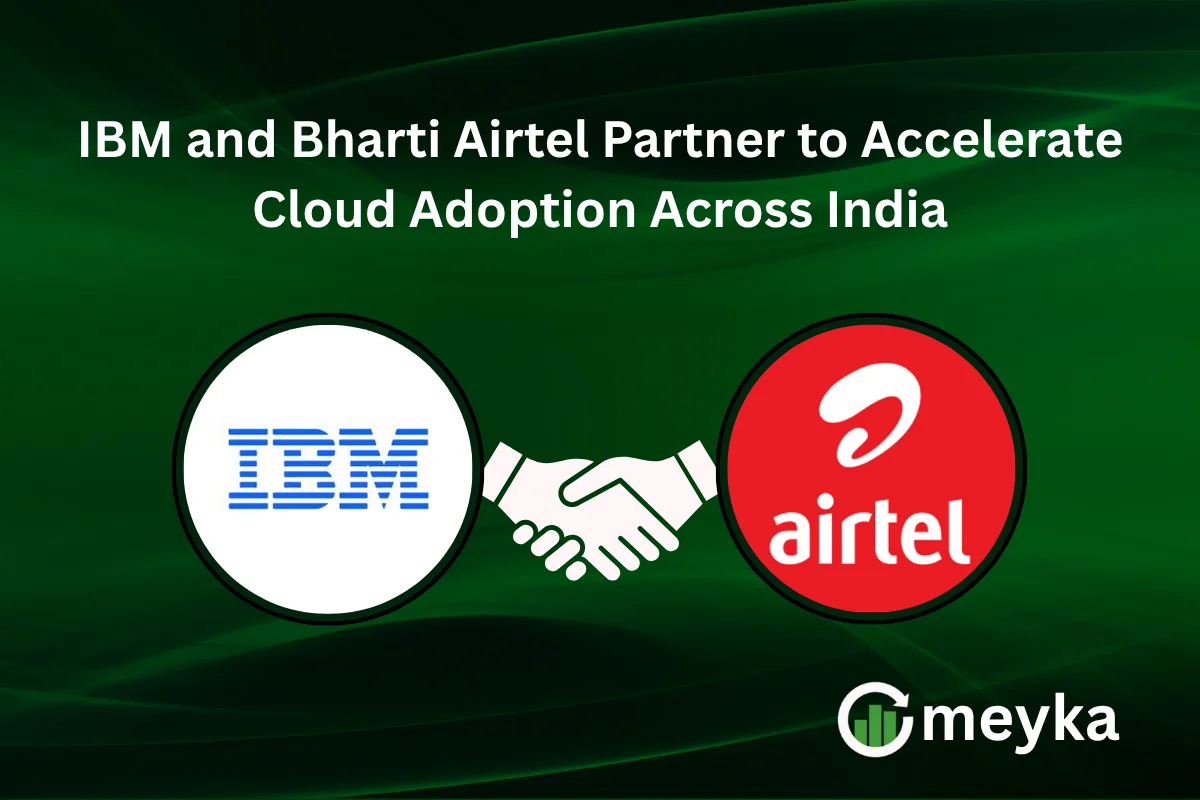IBM and Bharti Airtel Partner to Accelerate Cloud Adoption Across India
In a landmark development, IBM and Bharti Airtel have entered into a strategic collaboration to expedite cloud adoption across India. This partnership aims to empower Indian enterprises, especially small and medium businesses, with advanced cloud and AI capabilities. The alliance combines IBM’s deep cloud, AI, and hybrid infrastructure expertise with Airtel’s expansive network and enterprise reach.
Strategic Rationale Behind the Partnership
India’s digital economy is accelerating rapidly. Enterprises are transitioning away from traditional on-premises infrastructure toward modern cloud-first architectures. Yet many businesses still lack the expertise and scale to make this shift efficiently. By partnering, IBM and Bharti Airtel can fill this void.
- IBM brings its hybrid cloud platform, Red Hat OpenShift, AI capabilities via IBM Watson, and global experience in cloud migrations.
- Airtel, with its pan-India fiber and wireless network, plus an existing enterprise client base, can deliver cloud access to remote and underserved markets.
Together, they aim to reduce friction in cloud adoption: simplifying migration, lowering latency, and integrating networking and security.
What the Partnership Delivers to Indian Enterprises
1. Local Cloud Infrastructure with Low Latency
One core objective is establishing local data centers and edge sites across India. By doing so, Airtel can deliver low-latency connectivity while IBM handles the orchestration, security, and backend. This is vital for latency-sensitive applications like real-time analytics, IoT, and AI inference.
2. End-to-End Managed Services
The alliance offers enterprises a turn-key managed service stack: from infrastructure provisioning and migration to monitoring, backup, and disaster recovery. Many SMEs lack the in-house skills to implement cloud best practices; this offering closes that gap.
3. AI and Analytics Tools
By bundling IBM Watson, IBM Cloud Paks, and AI models, customers benefit from scalable AI, ML model deployment, and advanced analytics. These tools can help enterprises automate operations, drive smarter decision-making, and harness predictive insights.
4. Regulatory Compliance and Data Sovereignty
India’s evolving data protection landscape demands that enterprises keep sensitive data within national boundaries. Local infrastructure and audited services address compliance requirements, a strong differentiator for this offering.
5. Seamless Connectivity + Cloud
Airtel’s network can be tightly integrated with IBM’s cloud environment, yielding optimized routing, virtual private connections, and unified monitoring. This hybrid connectivity model helps especially in multi-cloud and on-prem integrations.
Business and Market Impacts
Accelerated Cloud Penetration in Tier 2/3 Cities
Historically, cloud adoption has been concentrated in metros. This partnership lets IBM and Airtel expand reach into second- and third-tier cities, tapping into a vast underserved market.
SME Digital Uplift
SMEs often cite cost, complexity, and risk as barriers to cloud adoption. The partnership’s packaged solutions, reducing risk and offering predictable costs, could catalyze a wave of digital modernization across sectors such as retail, manufacturing, healthcare, and education.
Competitive Pressure on Other Cloud Players
Global cloud providers operating in India, such as AWS, Azure, and Google Cloud, already compete fiercely. This tie-up gives IBM + Airtel a differentiated position: blending local network control with hybrid cloud skills, potentially forcing rivals to improve local partner ecosystems further.
Investor and Stock Market Significance
For investors tracking stock research in AI and cloud sectors, this move signals confidence in India’s digital trajectory. While Airtel is not strictly a tech stock, its venture into cloud may shift market expectations. Meanwhile, IBM’s ongoing pivot toward hybrid cloud and AI gains external validation. Investors monitoring stock market trends may see ripple effects across related infrastructure and software providers.
Challenges and Considerations
While promising, the partnership faces hurdles:
- Infrastructure costs: Building and maintaining data centers and edge nodes is capital-intensive.
- Talent gap: Managing cloud operations and AI modeling requires specialized skills; India’s tech workforce may struggle to scale fast enough.
- Competitive resistance: Established hyperscalers might intensify their offerings, subsidies, or partner incentives.
- Regulatory uncertainty: India’s data localization and privacy rules are still evolving; regulatory shifts could impose new burdens.
- Customer trust: Convincing businesses to migrate critical workloads to a joint platform demands strong credibility in security, uptime, and support.
Despite these, the combined strengths of IBM and Airtel position this partnership to overcome many barriers.
Why “IBM and Bharti Airtel” Matters for India’s Cloud Revolution
The sheer scale of Airtel’s reach, covering millions of enterprise and consumer endpoints, means that cloud and AI services can become more accessible even in remote corners of India. Meanwhile, IBM’s enterprise-grade tools and cloud strategy bring depth.
This partnership is more than a product offering; it is a catalyst for India’s broader digital transformation. As more businesses adopt cloud, ecosystem effects kick in: more SaaS development, more AI experimentation, more startups born from cloud-native innovations.
For those tracking AI stocks, this demonstrates that cloud infrastructure remains a foundational pillar for future AI deployments. Likewise, for stock market watchers and stock research analysts, moves like this shape sectoral sentiment and capital flows.
Key Takeaways & What to Watch
- The collaboration between IBM and Bharti Airtel aims to fuse network reach and cloud-AI capabilities for mass adoption.
- India’s SME segment, especially beyond metros, stands to benefit most from packaged, managed digital transformation solutions.
- This alliance could intensify competition and spur improvements from existing cloud providers in India.
- Investors should monitor strategic moves in AI, cloud, and telecom sectors as this partnership unfolds.
- Success hinges on execution, local infrastructure rollout, skill development, regulatory clarity, and building trust.
This is a major inflection point for India’s tech ecosystem. With the right execution, the synergy between IBM and Airtel may unlock a new era of cloud-led growth across the country.
FAQs
SMEs often lack internal cloud expertise or resources. With IBM and Airtel’s combined offering, SMEs gain access to turnkey cloud infrastructure, AI tools, managed services, and connectivity solutions, facilitating smoother, lower-risk adoption of digital technologies.
Yes. This partnership signals confidence in cloud and AI growth in India. Investors focused on AI stocks, infrastructure plays, and telecom-tech convergence may adjust valuations and reposition portfolios accordingly. It also puts pressure on competing cloud providers to boost their India-based service offerings.
Major risks include high infrastructure costs, talent shortages, regulatory changes around data sovereignty, stiff competition from established hyperscalers, and the challenge of earning customer trust for mission-critical workloads.
Disclaimer:
This content is made for learning only. It is not meant to give financial advice. Always check the facts yourself. Financial decisions need detailed research.






